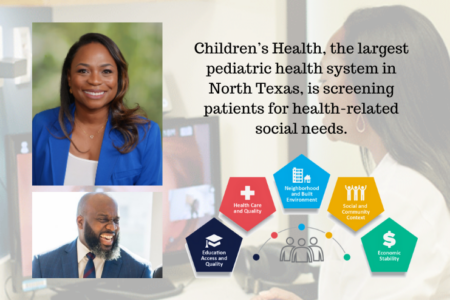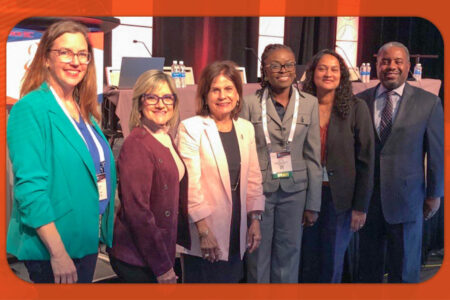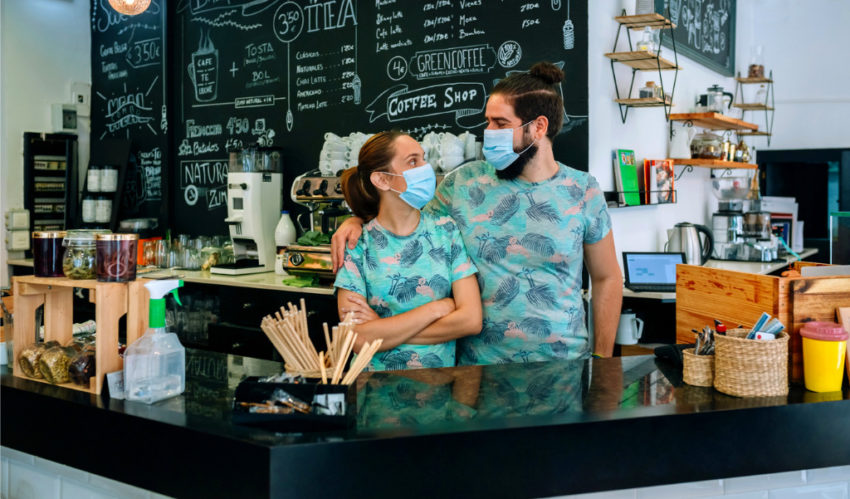
Share On Social!
COVID-19 isn’t only disproportionately infecting and killing Latinos and causing job loss and stress.
The pandemic is also hurting Latino-owned businesses.
These businesses, which already face bias and racism when it comes to securing financing, have fewer resources to weather the ongoing storm of the pandemic, according to a report by the Stanford Latino Entrepreneurship Initiative.
In fact, 41% of Black-owned businesses, 32% of Latino-owned businesses, and 17% of White-owned businesses across the country shut down between February and April, according to a recent study by the Federal Reserve Bank of New York, the CT Mirror reports.
Thankfully, some new programs and initiatives aim to help businesses owned by Latinos and other people of color.
A $5 Billion Program to Support Minority-Owned Businesses
In November 2020, BMO Financial Group launched a $5 billion initiative that will support minority-owned businesses and communities.
The program aims to reduce the racial/ethnic wealth gap and address systemic racism.
It allots for $3 billion for community reinvestment in affordable housing and neighborhood revitalization. It also has $500 million in mortgage lending in low-to-moderate income level communities, and $500 million in commercial lending.
“We’ve seen the disparate impact that it (COVID-19) has had on communities of color during the economic downturn,” said Eric Smith, a Chicago-based vice chairman at BMO who is heading up the program, told the Chicago Tribune. “We wanted to make sure that we could provide targeted assistance to not only small businesses, but to minority businesses as well.”
BMO will provide small business lending to expand resources for women-, Black- and Latino-owned small businesses. It also calls for critical support for its municipal and non-profit clients.
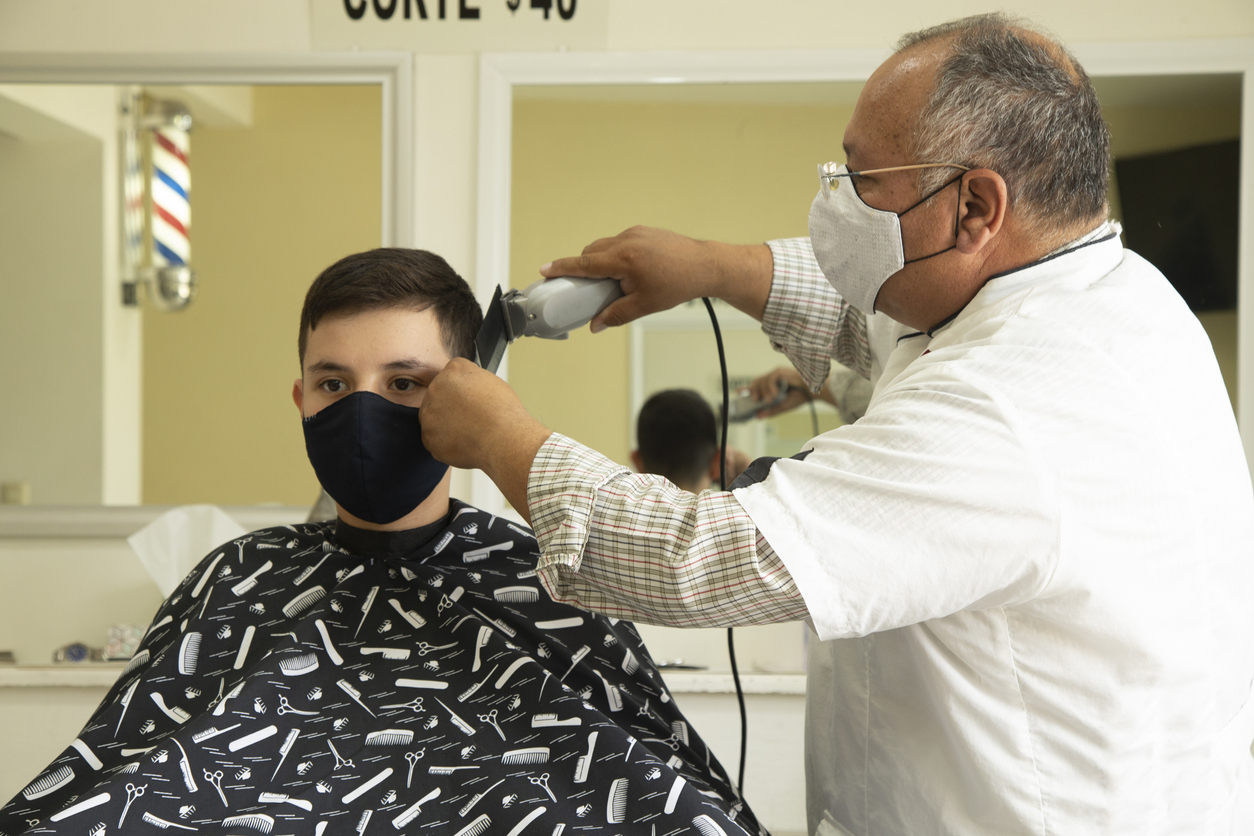 This is a critical need given that almost 25% of small businesses have closed since the start of 2020.
This is a critical need given that almost 25% of small businesses have closed since the start of 2020.
“We are going to set up a special loan program for Black and Latinx small businesses,” Smith said. “We will train our branch bankers to work with small business owners as they come in seeking access to loans.”
For minority-owned businesses, the initiative also will support supplier/business diversity initiatives, diverse talent and advancement programs, and increase philanthropy targeted at systemic change.
BMO also will add more Black and Latinx investment managers on its wealth-management platform.
“The barriers that disproportionately affect minorities — and in particular Black and Latinx communities — have only intensified during the COVID-19 pandemic,” David Casper, BMO Financial’s U.S. chief executive, said in a press release. “The bold commitments outlined in this pledge are designed to help tackle barriers to inclusion in the financial services industry and create more opportunity for our clients, communities and colleagues to succeed in business and in life.”
What Other Programs Are Helping Latino Businesses?
More support for small businesses is coming in.
JPMorgan Chase committed $30 billion over the next five years to “provide economic opportunity to underserved communities, especially the Black and Latinx communities.” AMN Healthcare launched a new program to help minority-owned businesses obtain Minority Business Enterprise (MBE) certification.
In Colorado, new legislation is providing $37 million to small businesses. It also will give $4 million to some of the state’s over 130,000 minority-owned businesses.
In Chicago, FHLBank Chicago’s Targeted Impact Fund provides members with grants to support relief efforts. Funds also go to promote equity and opportunity for communities of color.
 In Troy, Mich., Flagstar Bank is spending $1 million to help minority-owned small businesses in Michigan, Indiana and California. As part of that effort, the bank recently gave $75,000 to the Grand Rapids Area Black Businesses and the West Michigan Hispanic Chamber of Commerce to give grants to small businesses affected by COVID-19.
In Troy, Mich., Flagstar Bank is spending $1 million to help minority-owned small businesses in Michigan, Indiana and California. As part of that effort, the bank recently gave $75,000 to the Grand Rapids Area Black Businesses and the West Michigan Hispanic Chamber of Commerce to give grants to small businesses affected by COVID-19.
“To manage our own funds and to be able to distribute funds within our Latinx business community, this demonstrates real trust in grassroots organizations of color like ours to serve our own people,” Chamber leader Guillermo Cisneros said, in a press release.
In Illinois, Gov. JB Pritkzer launched the $636 million Business Interruption Grant (BIG) program to help the struggling small buisness community. The Illinois Department of Commerce and Economic Opportunity, the Resurrection Project, and the Illinois Business Immigration Coalition also are raising awareness about the program among Latino small business communities. They are providing technical assistance to business owners who apply.
“BIG leverages federal funding provided by the CARES Act to help offset COVID-19 related losses for Illinois small businesses,” according to BIG website.
Why is This Help for Latino Businesses Important?
Keeping Latino businesses afloat is critical for the better growth of U.S. economy.
Latinos, who comprise 18.5% of the nation’s population, have a gross domestic product that equates to world’s eighth-largest economy. Indeed, Latinos will power the U.S. economy to a better future.
“It’s important to make sure you go beyond just what’s required,” Eric Smith, a Chicago-based vice chairman at BMO who is heading up the program, said to press. “It’s about making sure that you can really invest in the future and promote economic recovery.”
What Can You Do for Health Equity for Latinos?
Start by taking a look at local health inequities.
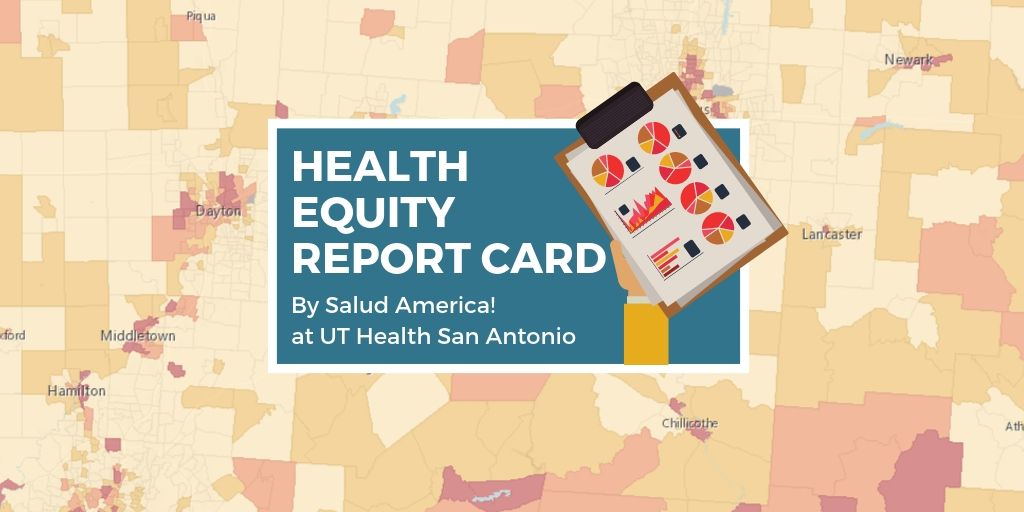 Download a customized Salud America! Health Equity Report Card. You will see how your area stacks up in poverty and other equity issues compared to your state and nation.
Download a customized Salud America! Health Equity Report Card. You will see how your area stacks up in poverty and other equity issues compared to your state and nation.
Also, you can email your report card, share it on social media, and use it to make the case for community change to boost health equity.
GET YOUR HEALTH EQUITY REPORT CARD!
Explore More:
Understanding & Reducing PovertyBy The Numbers
23.7
percent
of Latino children are living in poverty


